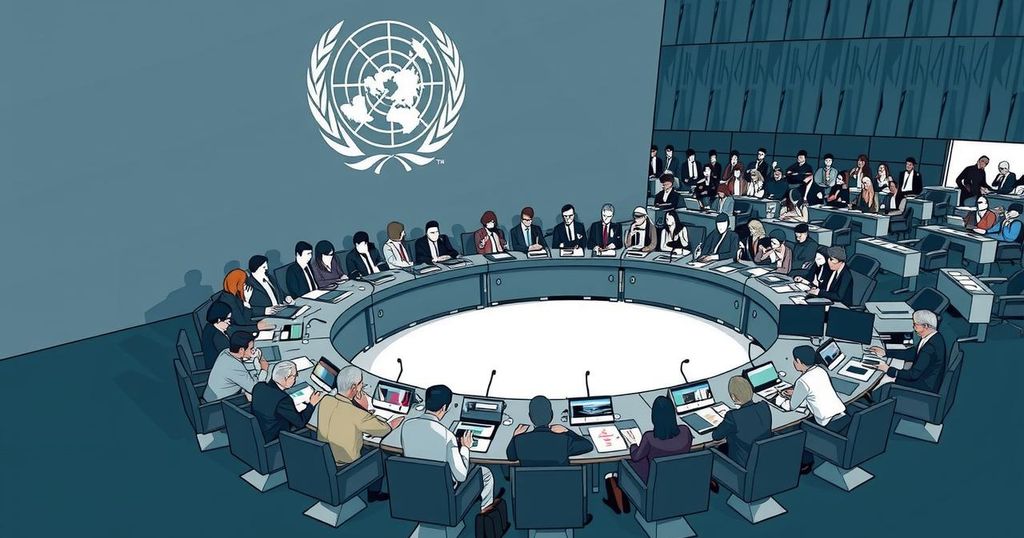Negotiators at UN climate talks are facing significant discontent from developing nations over insufficient financial proposals for climate action. Key groups, including African nations and the Alliance of Small Island States, rejected recent drafts, asserting they do not meet the urgent financial needs posed by climate change. The discussions have highlighted longstanding tensions over financial commitments between wealthy and poorer nations, with activists voicing concerns over the perceived lack of genuine commitment from developed countries. The outcomes remain uncertain as stakeholders continue to push for a more equitable resolution.
During a tense session of United Nations climate talks, negotiators from developing nations expressed strong dissatisfaction with a rough draft proposal concerning financial assistance for addressing climate change impacts. Particularly, African nations and members of the Alliance of Small Island States rejected the proposal, prompting leaders of the Least Developed Countries bloc to walk out in protest. They demand more substantive negotiations before acquiescing to a subpar deal. The central issue revolves around climate finance, with developing nations seeking a commitment of $1.3 trillion annually to adequately address various climate-related challenges. Although a revised proposal suggested funding of $300 billion, representatives criticized it as inadequate compared to their true needs. Activists demonstrated against what they termed the perceived inaction of wealthy nations, particularly the United States, in contributing meaningfully to these discussions. Amid rising tensions, officials from developing nations expressed concerns that ongoing negotiations would not yield a favorable outcome.
As talks continued, negotiators highlighted the pressing need for more substantial financing solutions to support equitable transitions to clean energy, effective adaptation strategies, and reparations for damages incurred due to climate disasters. While some participants remain hopeful about reaching meaningful agreements, others caution against accepting inadequate proposals that fail to meet previously established commitments.
The current United Nations climate talks have showcased the disparity in perspectives between developed and developing nations regarding financial responsibility in combating climate change. Developing countries, particularly vulnerable ones, argue that wealthy nations have historically failed to meet their financial pledges made during the Paris Agreement and other frameworks. The emerging tensions during these negotiations underline the urgency for adequate funding, with developing nations cataloging a pressing annual need of $1.3 trillion to manage climate adaptation, mitigation, and loss and damage. The talks have become a focal point for discussing how to mobilize substantial financial resources, recognizing that the consequences of climate change disproportionately impact the most vulnerable populations around the world.
In summation, the United Nations climate talks are at a critical juncture marked by significant disagreement over financial commitments necessary for combating climate change. Developing nations express acute frustration with current offers, deeming them insufficient to meet their urgent needs. The ongoing negotiations highlight the broader issues of equity and responsibility in global climate action, with developing nations reminding their wealthier counterparts of their obligations. The stakes remain high, as time is running out to forge a deal that adequately addresses the severe impacts of climate change for vulnerable populations worldwide.
Original Source: www.voanews.com







